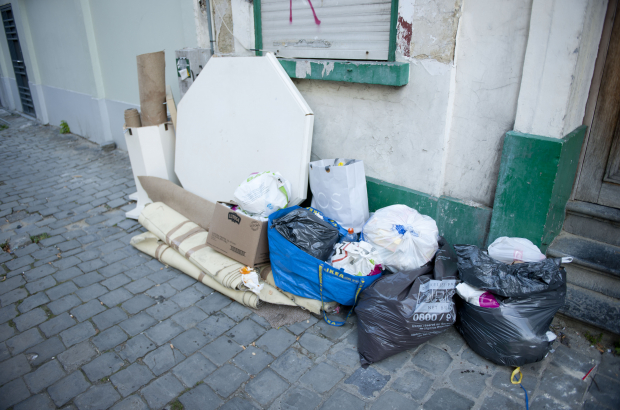- Daily & Weekly newsletters
- Buy & download The Bulletin
- Comment on our articles
Municipalities divided on taking full responsibility for cleaning streets
The debate over whether the municipalities of Brussels should be given the responsibility for cleaning their own streets, rather than it being the job of the Brussels-Capital region, is a long-running one. In some areas, the duties are already shared between the central agency for cleanliness, Bruxelles Propreté, and the communes.
In Schaerbeek, where the debate has stirred yet again, many believe that transferring all responsibility for cleaning the streets to the municipality would solve a good part of the rubbish problem the commune has. Of course, though, the situation is much more complicated than that.
Cigarette butts, drink cans, garbage bags, general waste… all of this and more is almost accepted as part of the décor on the Place Liedts in Schaerbeek, a stone's throw from the Gare du Nord. "A good example of things not working here are the dead birds that seem to have been there for quite some time," sighs Déborah Lorenzino, councillor for public cleanliness in Schaerbeek.
According to the councillor, it is complicated to manage the problem in Place Liedts in particular because there are too many operators active in this small territory: "We are on a square that is maintained by the Brussels region as well as some of the large roads that join it, but the perpendicular or parallel streets are maintained by the municipality, while the tram stops are maintained by Brussels Mobility. Then there’s the Stib tram tracks, which the Stib is responsible for cleaning.”
So, to simplify all this, Lorenzino’s solution would be to let the municipality clean all the roads. "We are asking for the financial and human resources to do this, and the equipment that goes with it," she says.
The idea of the communes taking full responsibility has been knocked back and forth between the municipalities and region for more than a decade and was also included in the sixth state reform in 2012. Some municipalities support it while others, such as Saint-Josse, consider it is only viable if the municipalities have the means to provide and maintain the staff necessary to carry out the duties. The mayor of Saint-Josse, Emir Kir, is sceptical that transferring all the responsibility is the answer.
“The state of cleanliness of Place Rogier, which is part of in Saint-Josse, and other roads cleaned by the central agency, is quite reasonable,” he says. “It is true that we sometimes spend the evening tidying up afterwards, but it is something we decided on together. Personally, I do not think it is as easy as saying, ‘let’s transfer everything to the municipalities’ and it is settled. I think that today, what we need is a dialogue with the region and make sure that we improve things on the ground locally, together."
The ongoing debate, seen by some as an impasse, is in part due to the differences between those involved at the regional and municipal levels. This is something Alain Maron, minister for health and public cleanliness, wants to tackle. "When the problems are proven, we must give ourselves the means to solve them but together and through coordination and that is why we have launched an urban cleanliness strategy," he said.
This strategy launched a few months ago, with the aim of easing and improving coordination between the different actors involved in the cleaning the streets. The installation of zone managers has been discussed with several areas, including Place Liedts, identified as areas where this would be of benefit.



















Comments
And let’s not forget the Public’s responsibility in this.